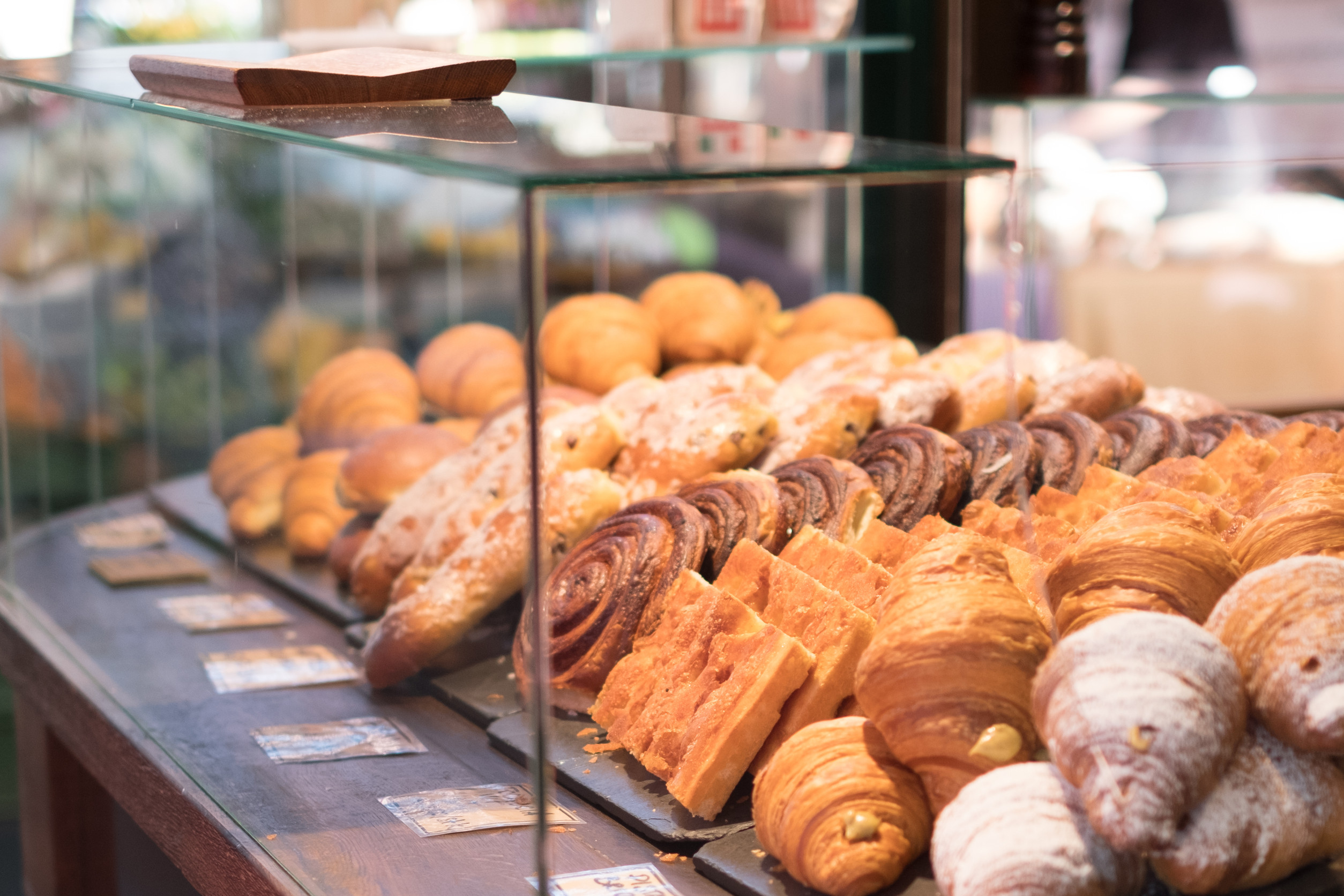
You probably assume your local bakery is squeaky clean—but there’s more going on behind the counter than meets the eye. Store bakery safety isn’t just about delicious cakes and fresh buns; it’s also about hidden dangers that could affect your health. From sanitation oversights to allergen mishaps and even unexpected infestations, staying informed helps you shop smarter. Knowing these issues can keep you—and your loved ones—safe. Let’s dig into what you should know (and what they don’t always tell you).
Allergen Labeling Isn’t Always Reliable
When it comes to store bakery safety, allergen mishaps are a huge concern. Many bakery products contain common triggers like wheat, milk, eggs, or nuts—from bakeries that handle everything under one roof. Yet, allergen labeling isn’t always accurate or comprehensive. In fact, 16 of 18 bakery recalls in 2021 were due to undeclared allergens, putting consumers at serious risk. For shoppers with food sensitivities, double-checking ingredients is a must—even if everything looks safe on the sign.
Cross-Contamination Is More Common Than You Think
Handling multiple items on the same surface is another challenge to store bakery items safely. Without proper sanitation protocols, breadboards, utensils, and trays can spread allergens or germs between batches. Many bakeries fall short on cleaning, especially during rush hours when speed trumps safety. If safety standards slip, your favorite pastry could become a health risk. When in doubt, ask staff how they handle cross-contamination—or play it safe by avoiding high-risk items.
Pathogens Can Hide in Unexpected Places
Pathogens like Salmonella, Listeria, or even Bacillus cereus aren’t just problems in meat counters—they’re issues in bakery sections too. Items containing eggs, dairy, or fillings that require refrigeration are especially vulnerable. Listeria, for example, thrives in cool, humid environments and has led to recalls of baked goods like doughnuts and pastries. Store bakery safety isn’t just a feel-good promise—it’s a vital public health issue. Being selective about what you pick can help reduce your exposure to invisible threats.
Pest Infestations Are a Real Danger
Here’s something that might really make you pause next time you shop: pest-related failures have forced even major retailers to shut down bakery sections temporarily. One instance involved a well-known grocery chain whose bakery and deli area was closed after health inspectors found rodents and cockroaches on site. These aren’t isolated incidents—pest control is a critical part of store bakery safety that varies greatly across locations. If something looks off or understaffed—consider switching to a different day or time, or opting for packaged items.
The Hidden Threat of Physical Contaminants
When thinking about store bakery safety, don’t overlook physical contamination—like hair, pieces of equipment, or even foreign matter ending up in your pastry. Supply chain lapses can introduce unexpected hazards—like metal shards in bakery ingredients. Protective gear, careful sourcing, and regular equipment checks help reduce this, but accidents still happen. Your pastry could contain something unpleasant that isn’t visible at first bite. Always inspect baked goods before digging in—you simply can’t be too careful.
Poor Hygiene Among Staff Can Spread Illness
You might not see it, but inadequate hygiene habits—like touching your face or hair and then handling products—can spread germs to baked goods. A study in grocery settings showed that employees and customers often touch high-risk surfaces before handling food. Even minor lapses in cleanliness can introduce pathogens to display items. For top-tier store bakery safety, consistent handwashing, glove use, and regular surface sanitation are essential. If you notice poor hygiene on display—such as unwashed hands or customers touching with bare hands—consider giving that counter a pass.
Sanitation Standards Sometimes Fall Short
Overall hygiene is the backbone of store bakery safety, yet practices vary widely. Inadequate sanitation—especially around drains, display cases, and prep areas—can foster mold, bacteria, or foul odors. Even well-meaning employees can fall behind during busy periods. Regular deep cleans, monitoring hygiene by management, and using proper baking tools are what separate safe bakeries from unsafe ones. If you sense a lack of cleanliness—trust your gut and shop elsewhere.
Knowledge Is Your Best Ingredient
Store bakery safety involves more than fresh bread and tempting displays—it includes allergen risks, pathogens, pests, physical contamination, hygiene oversights, and sanitation lapses. While most bakeries work hard to stay safe, knowing what to watch for empowers smart shopping. Be observant about cleanliness, ingredient accuracy, and store reputation to protect yourself. A little awareness never hurts—and it ensures your sweet treat stays sweet.
Have you ever noticed unsafe conditions in a store bakery or had a worrisome experience? Share your story in the comments below!
You May Also Like…
- 10 Common Kitchen Items That Fail Consumer Safety Tests
- 5 Big Box Items That Are Failing Safety Inspections
- 9 Things Boomers Did Daily That Are Now Safety Hazards
The post What You’re Not Being Told About Store Bakery Safety appeared first on Grocery Coupon Guide.







